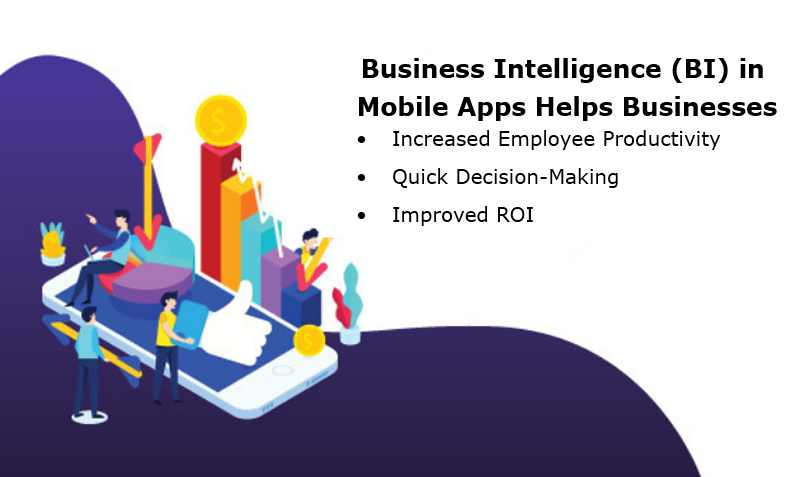Gone are the days when mobile phones were used to keep in touch with family and friends. The situation has changed completely due to the great advancement of mobile technology and the introduction of smartphones. Today, smartphone users can access thousands of mobile apps integrated with business intelligence to deliver smart information.
Though the rapid growth of mobile apps featuring business intelligence was slowed down for a while, it has started gaining momentum again due to the tremendous growth in smartphone users and the huge popularity of mobile apps. The integration of business intelligence in mobile phones will evolve more when it shifts from a dashboard-based application to a highly-advanced task-specific feature.
Due to the continuous advancement of smartphones, users now interact with their smartphones and use them to access their business-related information and perform in-depth data analysis. Business Intelligence or BI, in simple terms, refers to a technology, application, or software used to store, extract, and analyze data to help management make better decisions. BI in mobile applications sends business managers crucial business-related data on their mobile devices like smartphones and tablets.
Read Also: Things To Keep In Mind While Choosing Android App Development Company
Here is how business intelligence in mobile apps helps businesses.
- Increased Employee Productivity: The information system used in CRM marketing to automate the the Salesforce management system requires huge financial investment in addition to a lot of manual labor for the data-entry work. The integration of business intelligence in mobile apps provides the users an efficient management information system at a fairly less price. This system allows the sales team to access the most accurate business related information anytime, from anywhere. The BI powered business apps also help the sales team to understand how the services of provided by the business can help in achieving the targets. Also, the applications will be also helpful in supply chain management to formulate a distribution strategy for the retailers and manufacturers. The businesses can propose several models through the BI powered apps for product life cycle management and the I.T. chain operations.

- Quick Decision-Making: These days, the companies need accurate business-related information as quickly as possible so that they can take important decisions quickly and grab the right opportunity at the right time. While the delayed and inflexible business related information can cause many serious issues in the growth of organization, the quick and accurate information helps in identifying the real cause of the issues along with quick decision from the management. The aim of integrating business intelligence in mobile apps is not restricted to deliver quality information but also facilitate quick decision-making thus helping the decision makers to cut down the costs and increase the profits of the business by taking the advantage of valuable insights from historical business related trends and future estimate predication.
Read Also: How To Choose An IPhone App Development Company For Your Business
- Improved ROI: As the BI powered mobile apps for businesses feature a wide range of user-friendly features, this will definitely improve their return over investment. The user-friendly features and functions of the BI powered business apps keep the management up-to-date with the latest industry trends and developments by allowing them to subscribe for the mobile alerts, notifications, and detailed reports, which could be saved in various easy-to-read formats right on their mobile devices. This vital business related information can be further filtered by types of functions, thus saving the time and helping the management in quick decision making. The mobile apps integrated with business intelligence also allow the management to analyze various industry trends quickly by changing the settings and classify the report into multiple graphs to do an in-depth research on the crucial business data. In a nutshell, the BI powered apps simply make the crucial business related reports and graphs accessible on the mobile devices so that the management can take quick decisions without wasting the time and given opportunity.
The business intelligence in mobile apps was introduced just a few years ago but due to the increasing competition and need of accurate business information, its demand is increasing continuously. When the end-users will become adept at using these apps with the same accuracy and speed as the conventional desktop based apps, the popularity of BI powered mobile apps will increase further.
last words…
Are you searching for the Best Mobile App Development Company in USA? Well here we are providing the best mobile app development services for ios, android and windows phones. We have a most talented and dedicated developers who are always ready to work for you. We also provide our services in USA, India, USE and Australia.












